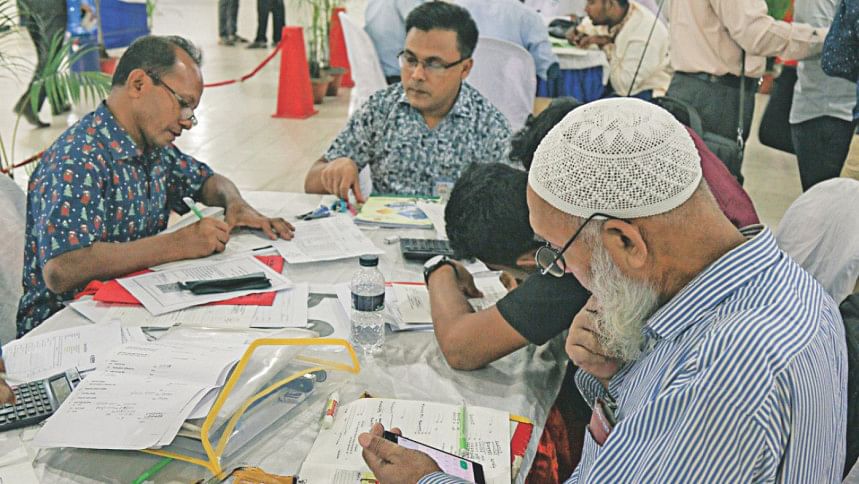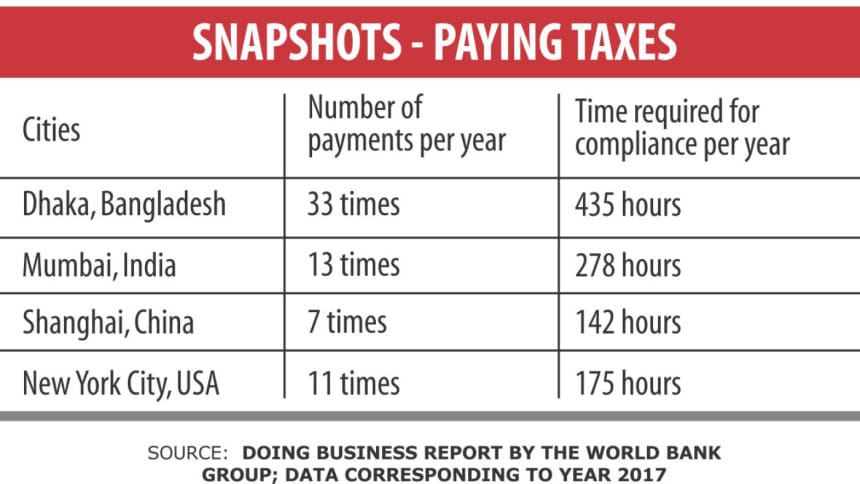Automation and the future of tax payment

The process of collecting tax and complying with tax laws is changing fast. New generation computer software, real time reporting, artificial intelligence and machine learning technologies are transforming the tax systems of economies around the world.
As a result, most countries have improved their tax assessment and collection systems considerably over the previous one year.

The ease and efficiency of paying taxes can be measured by the time spent on complying with the tax rules of economies.
Leading emerging countries such as China have improved this metric significantly. According to the report published by PwC and the World Bank Group—Paying Taxes—it took businesses about 142 hours to comply with tax obligations in China in 2017.
This was a significant improvement from 207 hours taken for this activity the previous year.
However, changes brought about in a tax system do not always improve efficiency in the short term.
For example, implementation of GST in India has resulted in some metrics shifting in a different direction from that expected.
According to the report Paying Taxes, although the revenue department implemented the new GST system in India by deploying modern technology, the average time taken to comply with the rules increased from 216 hours in 2016 t0 275 hours in 2017.
This instance, however, should be reviewed in combination with other parameters of this transformation journey, such as abolishment of disparate and multiple pre-existing tax systems by rolling out a single tax system for the entire country, which created opportunities to bring about enhanced efficiency in business.
A number of global trends, including demographic changes, a shift in economic power to emerging countries, climate change, urbanisation, and above all, technological advancement, could affect how governments will collect taxes in the future.
The best tax regimes are nimble and responsive to changes in the structure of their economies. The next few years are likely to test these attributes as significant disruptive forces emerge.
One of the most significant disruptions is expected to emanate from use of artificial intelligence (AI) and its effect on the labour market.
AI, including robotics, is likely to automate a large number of manual labour-intensive jobs in coming years.
However, countries that collect the bulk of their taxes from labour-intensive activities, such as taxes from individual incomes and services, are likely to witness a short-term decline or slower growth in their revenue collection.
While a knee-jerk and populist reaction would be to enact laws to prevent rollout of such technologies, economies would actually do better in the long term to adopt them, since they hold the potential for additional job creation, provided countries are nimble enough to train their workforce and make them ready for the future.
This calls for training of the public in general and of tax officials and taxpayers in particular.
The main role of tax authorities is to ensure compliance with tax laws.
How a tax authority interacts with taxpayers and tax officers affects the degree of voluntary compliance in a country and public perception of the efficiency of the tax authorities.
Appropriately trained and skilled tax officers are more likely to interact professionally with taxpayers, and thereby enhance their satisfaction and compliance with tax rules.
According to the 'Doing Business' data collected by the World Bank Group, training conducted for tax officers or taxpayers is not systematic.
It has been found that only 35 percent of the tax authorities in the 157 countries surveyed conduct regular training for tax officers. In most cases, training is only conducted when a new ruling or tax law is enacted.
With technological advancement, training cannot remain an intermittent ruling-driven event and needs to be planned for major technological upgrades and automation of work.
For example, modern software based on techniques such as machine learning can analyse a diverse set of data as well as tax returns, and identify potential cases of tax evasion.
Such automated processes significantly improve coverage of tax assessment and the efficiency of tax assessing officers.
However, the officers need to be trained on using such sophisticated tools that require a far higher understanding of computer-assisted techniques than of traditional methods of assessment.
Only regular training on fast-evolving technologies can help a tax system reap the maximum benefits.
The usual way in which taxpayers receive information is from the tax authorities via tax rulings, for instance, in Bangladesh, the Tax Department organises events such as tax fairs to train taxpayers.
And with advances in technologies, paying taxes and submitting tax returns are fast becoming digital.
In many countries, taxpayers can now pay taxes online through interfaces with their banks and can also submit their tax returns online.
In some countries such as India, tax assessment proceedings are conducted on digital platforms, which eliminate the need for individuals to visit the tax office.
However, it is important to educate the taxpayers on new tools while rolling out.
Creating an ecosystem of authorised training providers is likely to improve the confidence of the taxpayers to use technology based tax systems effectively.
And by enabling taxpayers to interact with tax departments digitally would also improve their satisfaction with the services provided.
Bangladesh has been steadily increasing its tax collection over the past couple of years. Its National Board of Revenue offers several services over the internet to improve the speed and quality of its services.
The department also organises tax fairs to educate taxpayers and help them pay taxes according to mandated procedures. With additional training and technological enablement of tax officers, the revenue department can also improve its citizen-focused services further and increase tax collection in the country.
The writer is a partner at PwC. The views expressed here are personal.

 For all latest news, follow The Daily Star's Google News channel.
For all latest news, follow The Daily Star's Google News channel. 



Comments